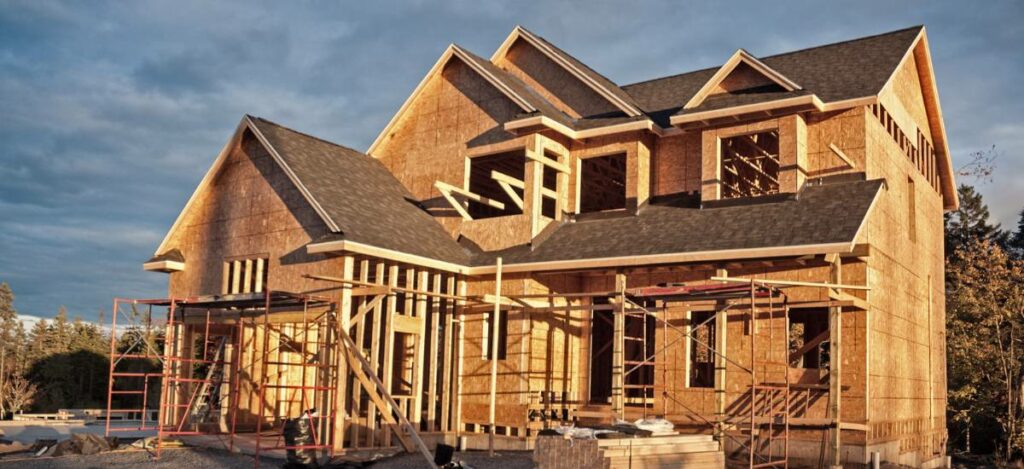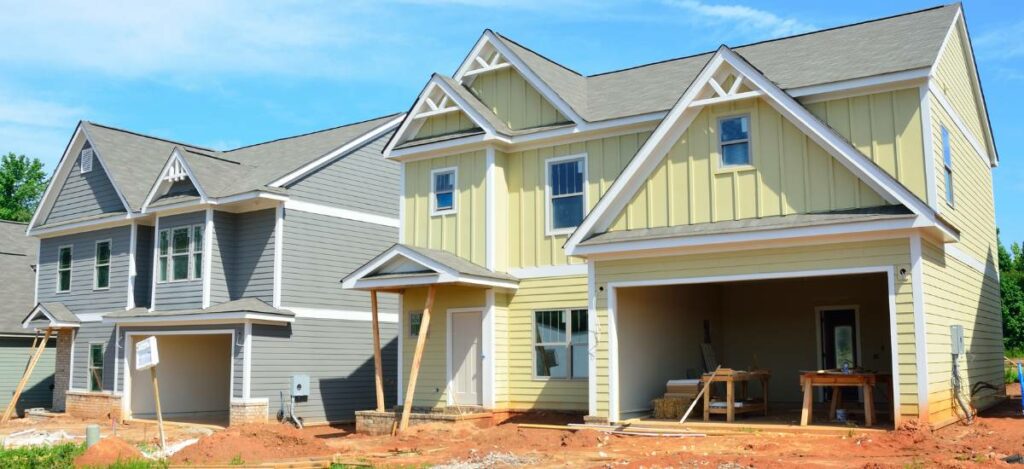Construction Loan vs Mortgage
Up to 100% Financing
For residential builders
Interest Rate
10 - 13.25%
Origination fee
from 1.375%
Loan To Cost (LTC)
up to 90%
Construction Financing
up to 100%
Loan To ARV
up to 75%
Term
up to 24 months
Minimum Loan Amount
$100,000
Maximum Loan Amount
$5,000,000
Minimum FICO
650
Type of Property
Residential 1-4 units, condos, townhomes
What is a construction loan?
A construction loan is typically used to finance the construction of a new home or the renovation of an existing property. They are short-term loans with higher interest rates. Construction loans can be used to cover the cost of the land, the labor required for the project, building materials and any permits that are required.
Construction loans only require the interest to be paid during the construction phase, and the balance of the principal loan amount can be paid once the project is completed. This, along with the fact that construction loans are tailored to each project, makes these loans unique.
What is a mortgage?
On the other hand, a mortgage is a long-term loan that is used to purchase real estate and own the property for a longer period. Typically, mortgage loans run anywhere between 15 and 30 years. Mortgage loans have lower interest rates, which make them more affordable over time.
Mortgage loans require payment of both the interest and the principal loan amount, and they are amortized over the duration of the loan. These loans are suited to long-term real estate investments.
Key Differences - Construction Loan vs Mortgage

- Construction loans are used to fund building projects
- A mortgage is used to acquire ownership of a property
- The length of a construction loan is usually 24 months or less
- The standard length of a mortgage is 30 years
- Most construction loans work on interest-only payments
Purpose
Construction loans are designed to finance renovation projects, or the construction of a new home. Construction loans are only designed to run for the duration of the project, which means they have shorter loan terms.
Mortgage loans, on the other hand, are aimed at financing the purchase of real estate. They are long-term loans geared towards property ownership.
Interest Rates
The interest rates on construction loans are higher than mortgage loan rates. This is due to the short-term nature of construction loans, and the higher risk that comes along with construction projects.
Mortgage loans have a lower risk as they are long-term and have stable repayment structures.
Payment Structure
Construction loans give borrowers the opportunity to make interest-only payments during the project. After the construction project is complete, the principal loan amount will be due.
However, mortgage loan payments consist of both the interest and principal loan amount, in a structured system. Which means that the principal amount will reduce slowly over the duration of the loan.
Loan Terms
Construction loans are short-term loans that are tied to the length of the project. They can be anywhere from 6 months to a few years. Construction loans offer borrowers the chance to transition into a permanent mortgage or refinance the property, once the construction project is complete.
Mortgage loans usually have longer loan terms of between 15 and 30 years. This allows them to offer stable repayment options, and no transition is required at any point. These loans remain intact for the duration of homeownership.
Key Similarities

- Both construction loans and mortgages are secured by the property
- Both loan types have minimum credit score requirements
- A property appraisal is required before the loan can be granted
- There are closing costs invovled with both loan types
Secured By Real Estate
Both construction loans and mortgages use the property itself to secure the loan. This means that if the borrower is unable to repay their loan or is defaulting on their payments, the lender can take possession of the property through foreclosure.
Minimum FICO Score
Both types of loans have requirements that need to be met by borrowers. These requirements usually revolve around credit score, proof of financial stability and ability to repay the loan, and the value of the property. These factors all play a part in the qualification for a construction loan or mortgage.
Property Appraisal
The loan amount for both types of loans hinges on the property’s value. In both cases, this is determined by a property appraisal that is done by a professional.
Closing Costs
Both construction loans and mortgages will require closing costs, which must be paid by the borrower. These costs include fees for loan origination, property appraisal, and other related expenses.
Frequently Asked Questions
Do Construction Loans Automatically Turn Into A Permanent Mortgage?
No, construction loans do not automatically transition into a permanent mortgage usually.
However, there are various types of construction loans, a construction-to-permanent loan will transition. These loans combine both construction and permanent loans into one package, where closing costs are only paid once and the loan transitions automatically.
Aside from a construction-to-permanent loan, construction loans typically give borrowers the option to convert their loan into a permanent mortgage or refinance the loan once the construction project is complete. This is a separate process and will not happen automatically.
The NAHB shows that the sales of new single-family homes rose 4.4% between June and July of 2023. Along with this, NAHB data shows that the price of new construction homes has been on the rise. As such, it’s likely that construction loan rates may level out, following the trend set by mortgage rates which are forecasted to drop to about 6% over the next year.
Do You Have To Be A Developer To Qualify For A Construction Loan
No, you don’t have to be a developer to qualify for a construction loan. While developers often use these loans, other borrowers can also gain access to them. Construction loans are used by individual homebuyers, real estate investors, builders and contractors, as well as developers. These loans are based on the borrower being able to repay the loan, as well as the project’s feasibility.
Additional Resources

This Construction Loan Calculator quickly works out the maximum loan amount that you can qualify for when applying for a Construction Loan.
Find out the latest Construction Loan Rates here. This guide explores what rate you are likely to qualify for.
First and foremost, you need to know the location of the development and you also need to have building plans and permits.
The typical down payment on a construction loan is between 10% and 20% of the total project cost.
Some lenders are better than others. This guide reveals the Best Construction Lenders at this moment in time.
This guide explains out how you can get started in the Construction Industry.
On average construction workers make over $50,000 annualy.This resource explores how much construction pays, on average.
This is a step-by-step guide which explains how to start a Construction Business.
There are 3 main types of Construction Loan. This guide highlights the differences between them.
There are various US banks providing different Construction Loan options for real estate investors